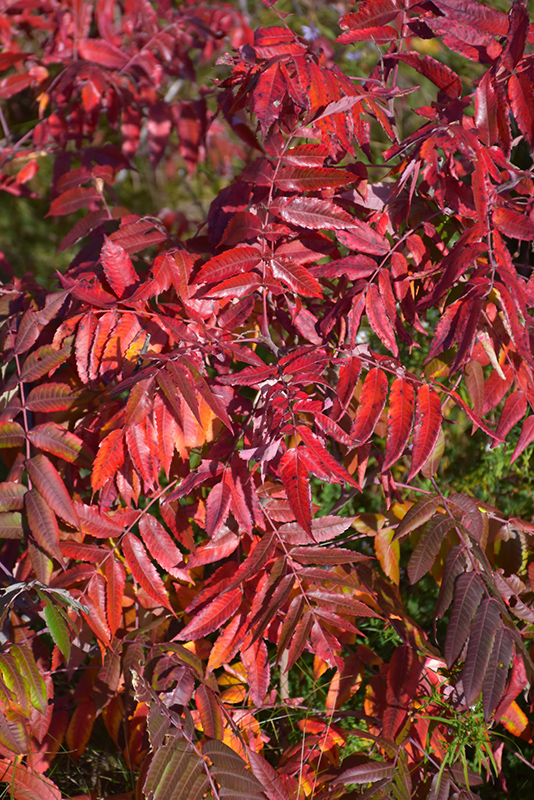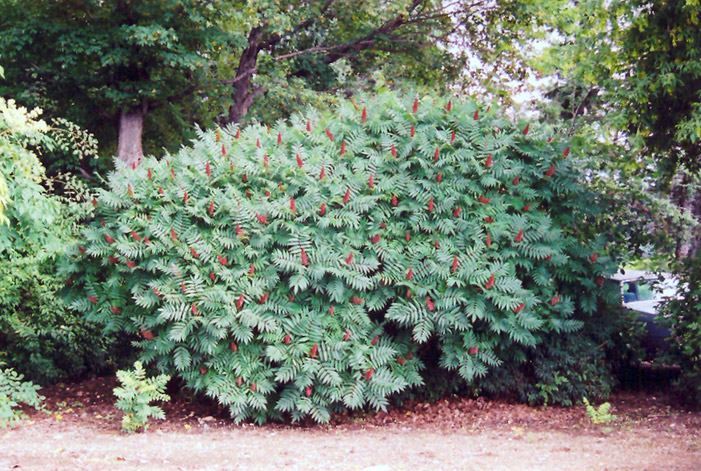Height: 12 feet
Spread: 12 feet
Sunlight:
![]()
![]()
Hardiness Zone: 2
Description:
An exotic yet hardy shrub with stout, pithy stems and fronds of tropical-looking leaves, can be rather leggy; very interesting upright spikes of red-purple fruit lasting into winter and brilliant fall colors; suckers vigorously, ideal for naturalizing
Ornamental Features
Smooth Sumac is primarily grown for its highly ornamental fruit. The scarlet fruits are carried on showy plumes displayed in abundance from early fall to late winter. It has spikes of green flowers rising above the foliage from mid to late summer. It has green deciduous foliage. The large narrow pinnately compound leaves turn an outstanding scarlet in the fall.
Landscape Attributes
Smooth Sumac is an open multi-stemmed deciduous shrub with an upright spreading habit of growth. Its relatively fine texture sets it apart from other landscape plants with less refined foliage.
This is a high maintenance shrub that will require regular care and upkeep, and is best pruned in late winter once the threat of extreme cold has passed. It is a good choice for attracting butterflies to your yard. Gardeners should be aware of the following characteristic(s) that may warrant special consideration;
- Suckering
Smooth Sumac is recommended for the following landscape applications;
- Accent
- Mass Planting
- General Garden Use
- Naturalizing And Woodland Gardens
Planting & Growing
Smooth Sumac will grow to be about 12 feet tall at maturity, with a spread of 12 feet. It tends to be a little leggy, with a typical clearance of 4 feet from the ground, and is suitable for planting under power lines. It grows at a medium rate, and under ideal conditions can be expected to live for approximately 30 years.
This shrub does best in full sun to partial shade. It is very adaptable to both dry and moist growing conditions, but will not tolerate any standing water. It is considered to be drought-tolerant, and thus makes an ideal choice for xeriscaping or the moisture-conserving landscape. It is not particular as to soil type or pH. It is highly tolerant of urban pollution and will even thrive in inner city environments. This species is native to parts of North America.


